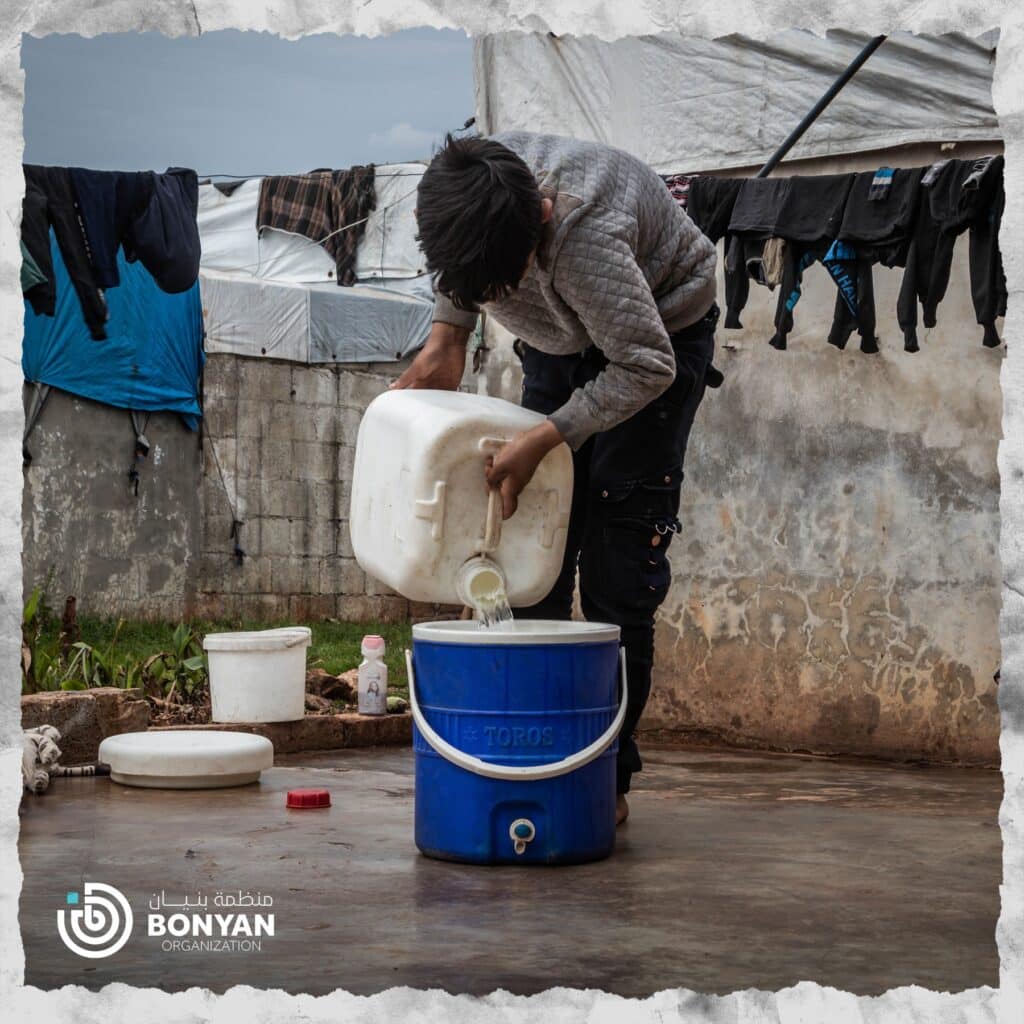Humanitarian WASH supplies are certainly one of the most crucial relief efforts during disasters and humanitarian emergencies.
Refugees’ settings are among the communities that need WASH interventions to accommodate their basic necessities, like safe water for cooking and drinking, as well as personal hygiene.
Moreover, water and sanitation services can help reduce the risk of contracting infectious diseases due to water contamination and poor hygiene.
This article will shed light on the importance of WASH services in refugee communities.
Preventing the Spread of Disease
WASH services play a significant role in preventing diseases, especially in humanitarian emergencies, such as refugee communities.
Access to clean, safe water for drinking, cooking, washing, and sanitation is essential for reducing the risk of contracting water-borne diseases in refugee camps.
For example, educating the refugees on hygiene practices, such as regular handwashing with soap and hot water, can curb the spread of infectious diseases.
This is because it limits the transmission of germs and contaminating particles.
Moreover, refugees’ access to sufficient sanitation services can decrease the spread of infections, such as cholera, dysentery, and typhoid.
The Impact of Poor Water and Sanitation on Health in Humanitarian Emergencies
Poor WASH services can have devastating effects on the health of populations of humanitarian emergencies like refugees.
Refugees are more likely to suffer from a host of diseases in the absence of clean drinking water and adequate sanitation systems.
Poor sanitation can lead to the spread of infectious diseases like malaria, dengue fever, and acute respiratory infections in refugee camps.
Furthermore, inadequate access to WASH facilities leads to an increased risk of food and water contamination, which can aggravate the humanitarian situation in refugee communities.
Additionally, inadequate access to water and sanitation can weaken refugees’ health and cause the spread of malnutrition and dehydration.
Protecting Vulnerable Populations
Providing the vulnerable refugee population with access to water and sanitation facilities can immensely curb the transmission of infectious diseases.
WASH services can also contribute immensely to improving their mental health and affect their phycological state positively because they provide them with a sense of safety and security.
Therefore, access to water and hygiene facilities can help improve the productivity and health state of refugees.

Providing Basic Needs
Indeed, WASH services are basic needs for human beings.
Therefore, access to safe water for drinking and cooking, as well as sanitation and hygiene, are considered to be one of the necessities for refugees.
By accessing clean water and sanitation facilities, refugees can maintain their health and well-being.
This is because they will practice basic hygiene and keep themselves and their living spaces clean, averting the risk of contracting diseases caused by a lack of hygiene.
The Connection Between WASH and Nutrition in Humanitarian Crises
WASH facilities and nutrition are closely related in humanitarian crises, such as refugee camps.
Access to WASH services is extremely important in refugee communities because they can prevent many nutritional deficiencies.
That is, unsafe water and poor sanitation can lead to the contamination of food and water, which can cause malnutrition.
Most importantly, applying good sanitation and hygiene practices can help improve dietary diversity.
In addition, access to improved WASH facilities can increase the availability of safe water for cooking and food preparation, reducing the risk of food contamination and other food-borne diseases.
The Long-term Implications of Neglecting WASH Needs in Humanitarian Settings
Neglecting refugees’ needs to WASH services can have a serious long-term impact on their health and well-being.
Inadequate hygiene and sanitation facilities in refugee camps can cause multiple serious diseases that can eventually lead to death.
Insufficient application of proper hygienic practices, such as handwashing, can lead to the spread of many infectious illnesses, such as measles, polio, and malaria.
Likewise, poor water quality can lead to long-term contamination of water sources, which can negatively impact the refugees’ health in the long run.
You can now extend a helping hand to our brothers and sisters in the refugee communities by providing them with water facilities.
Support our “Provide Clean Water to Syrian Camps” campaign and help save the lives of Syrian refugees by donating to building water wells.
Water wells will help ease the lives of thousands of refugees who are struggling to meet their water needs due to the limited supply of water available.
You can now donate at this link to get the immense rewards of charity both in this life and in the Hereafter!
Resources
FAQ
Why do we need humanitarian supplies during emergencies?
Humanitarian supplies such as food, shelter, and water are basic necessities during emergencies because they can ensure the safety and well-being of the affected people/
What does WASH mean in humanitarian relief?
WASH in humanitarian relief refers to the programs and initiatives that ensure access to safe and adequate water, sanitation, and hygiene for affected populations.
What is the importance of WASH interventions?
WASH interventions are important because they improve people’s quality of life by preventing water and food contamination and the spread of diseases.
What is the importance of hygiene during a disaster?
Hygiene is important during disasters because it precludes the transmission of infectious illnesses.
Content
- Preventing the Spread of Disease
- The Impact of Poor Water and Sanitation on Health in Humanitarian Emergencies
- Protecting Vulnerable Populations
- Providing Basic Needs
- The Connection Between WASH and Nutrition in Humanitarian Crises
- The Long-term Implications of Neglecting WASH Needs in Humanitarian Settings
- Resources
- FAQ



